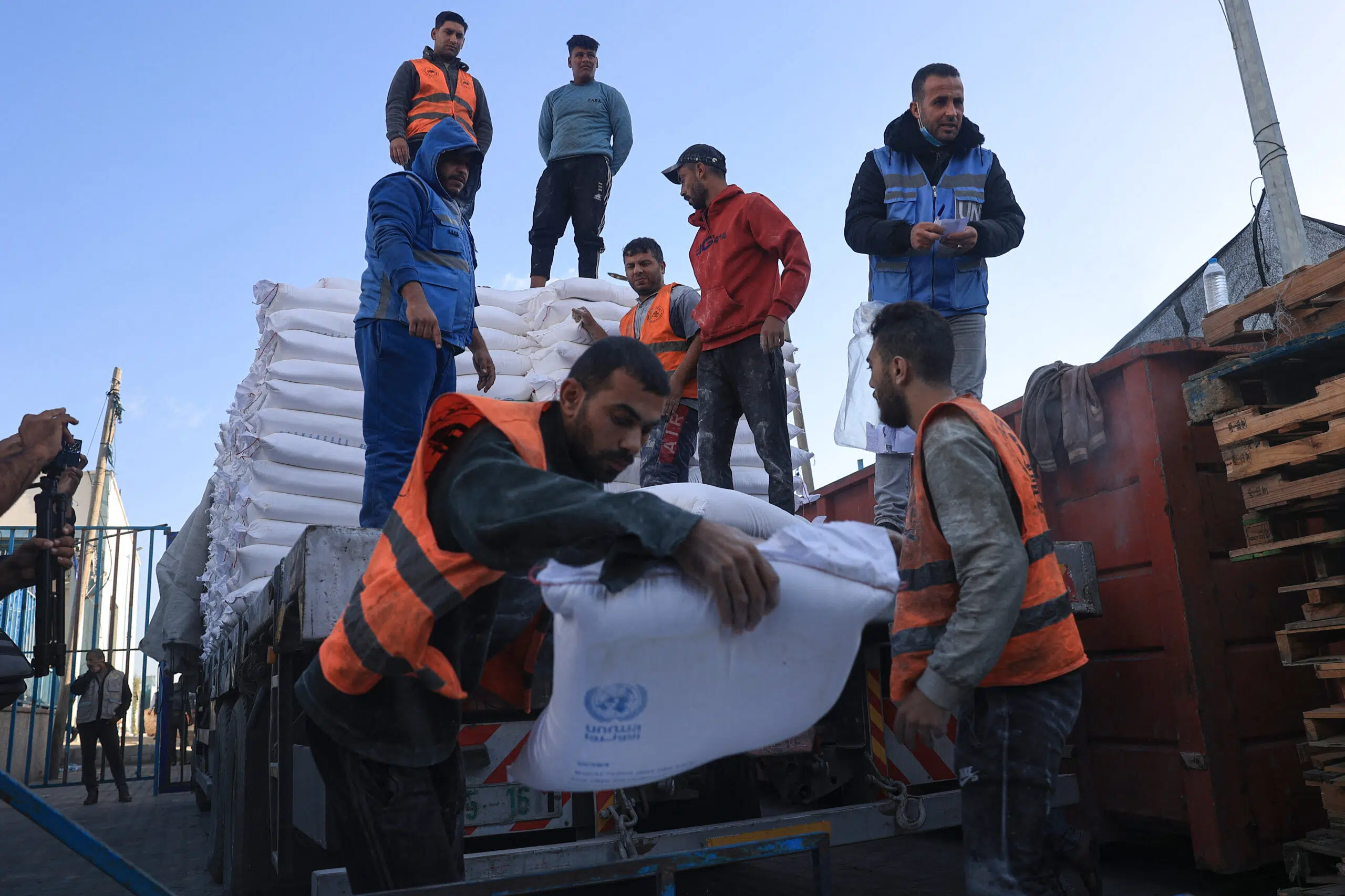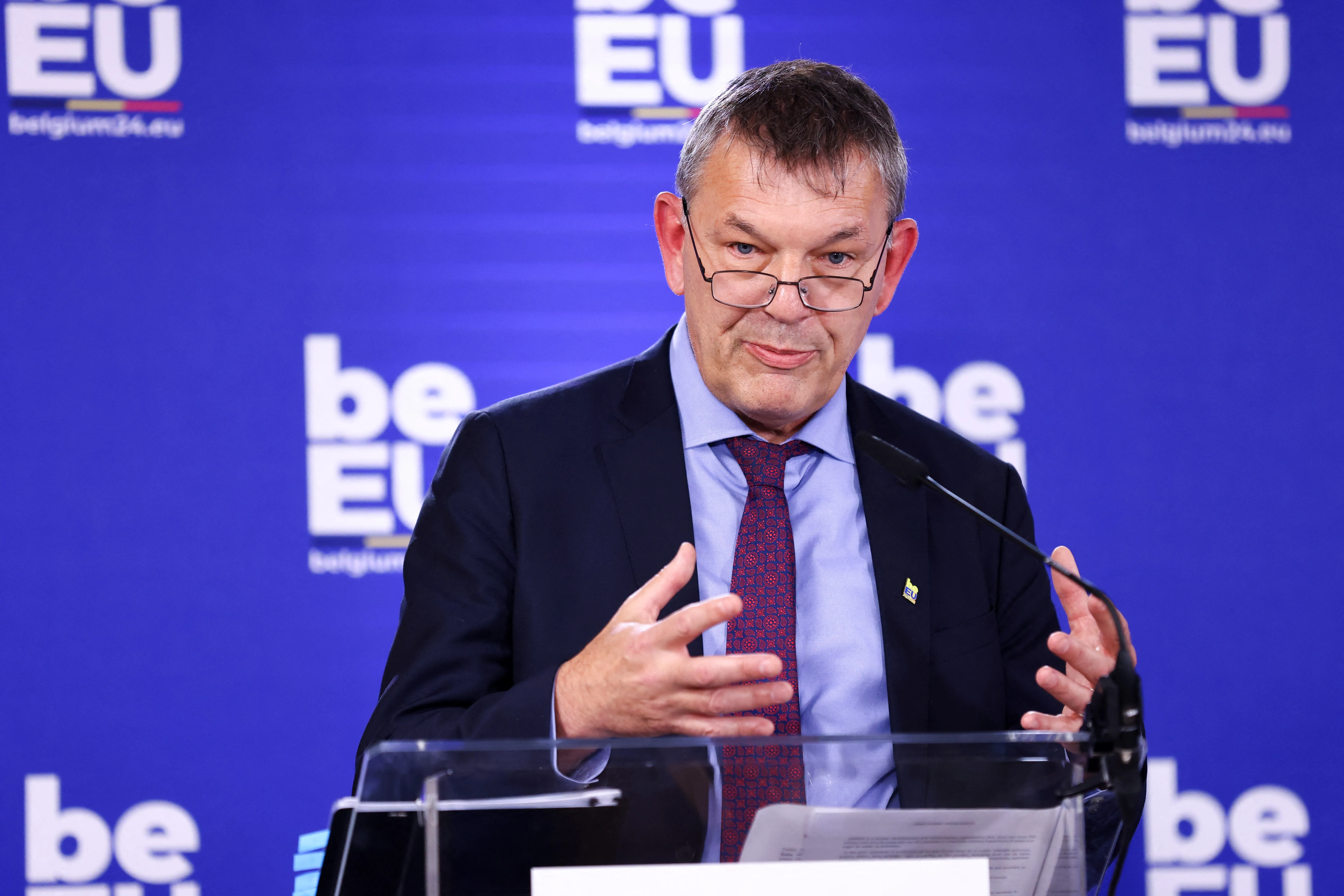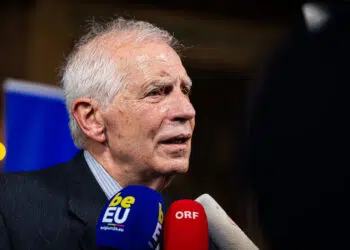Brussels – The €82 million that the European Commission is expected to pay into UNRWA’s coffers in early March is crucial for the Agency to continue its work in aiding Palestinian refugees. It’s cold, simple math: if several donors had not hastily decided to suspend $450 million in payments, UNRWA could have held out until late July. But now the Agency, which spends 60 million a month just to pay salaries, is in danger of going 30-40 million in the red as early as March.
The numbers were outlined to EU ministers—and the international press—by the Commissioner General of the Palestinian Refugee Relief and Works Agency, Philippe Lazzarini. Invited to Brussels for the informal meeting of the development ministers of the 27, Lazzarini took stock of the dramatic situation in Gaza—with the impending Israeli operation in Rafah—and the countermoves initiated by the Agency after allegations about the involvement of 12 of its staff members in Hamas terrorist attacks on October 7.

Again, the numbers speak for themselves: according to Unrwa estimates, now, 5 per cent of the Gazawi population has been killed, injured or missing in these four months of the Israeli siege. One hundred thousand people, out of a total of about two million. And heavy “pockets of malnutrition, with risk of famine,” especially in the north of the Strip, where 300 thousand people have reportedly remained and where UNRWA has failed to send humanitarian convoys since January 20. Lazzarini also recounted that yesterday in Rafah, for the first time, staff “could not operate with a minimum of protection” and that their food distribution vehicles were stormed because, by now, there are not even local police.
But, since Israeli authorities have accused members of UNRWA of complicity with Hamas, obstacles to the agency’s work have multiplied: “Contractors have been instructed not to send food because UNRWA needs it, VAT exemptions have been revoked, local banks have decided to freeze accounts, visas are no longer granted daily,” Lazzarini listed. All this is based on allegations that have not been supported by any evidence so far. “We have asked and still ask the full cooperation of the Israeli authorities to share the evidence,” reiterated the UNRWA commissioner general, who immediately fired the employees involved and launched an internal investigation in an effort to safeguard the agency.
There is now more than one investigation: that of Oios, the top UN investigative body, and the committee independent review led by former French Foreign Minister Catherine Colonna. Much of the funding that ensures the very survival of UNRWA depends on the outcomes of the latter, which will examine all internal risk management mechanisms, staff behaviour and political affiliations, and the agency’s preventive and investigative measures. Because if the UN investigation “lasts as long as necessary,” the Colonna-led team is expected to submit some preliminary observations as early as mid-March and the final report by April 20.

Many of the countries that have suspended funding (the United States, Canada, Australia, the United Kingdom, Italy, France, Germany, the Netherlands, Switzerland, Norway, Finland, Romania, and Japan) have expressed a willingness to wait for the results of the review before possibly resuming commitments to UNRWA. However, the EU is scheduled to disburse 82 million for 2024 in early March. Lazzarini discussed this with the Commissioner for Crisis Management, Janez Lenarčič, who reportedly asked for some assurances on recruiting UNRWA staff, strengthening the internal oversight mechanism, and monitoring staff. There was a “mutual commitment for the disbursement to happen,” the Swiss commissioner general said.
While acknowledging the “different approaches by member states,” the EU High Representative for Foreign Affairs, Josep Borrell, stressed that some countries have decided to increase support for UNRWA precisely because they are in a difficult situation, such as Spain, which announced today the disbursement of an additional 3 million for the agency. Borrell, reminding that it is always up to the accuser to prove the guilt of the accused, wanted to clarify a key point. One must “ensure individual accountability, not collective punishment.” That is: even if those 12 out of 30,000 employees are found to be implicated in the Hamas bombing, the losers cannot be the 5.6 million Palestinian refugees in Gaza, the West Bank, Syria, Lebanon and Jordan who survive only on UNRWA assistance.
English version by the Translation Service of Withub






